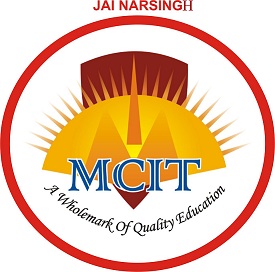-
CALL US TODAY!
+(91)-9950288822 -
WE ARE OPEN!
Mon-Sat 8.:30 AM-5:00 PM
CHEMISTRY LAB (ORGANIC AND INORGANIC)
The various experiments in the chemistry laboratory are a crucial part of knowing the principles and general results of science. That makes the learners thoughtful, creative, and ultimately wiser. Students are able to learn theoretical knowledge from this place by conducting various experiments. It is considered as the best process and principles to acquire the educational goals as deeply as possible in the field of chemistry. As a result, a lot of benefits and positive effects are created in chemistry education.
CHEMISTRY LAB (PHYSICAL)
The various experiments in the chemistry laboratory are a crucial part of knowing the principles and general results of science. That makes the learners thoughtful, creative, and ultimately wiser. Students are able to learn theoretical knowledge from this place by conducting various experiments. It is considered as the best process and principles to acquire the educational goals as deeply as possible in the field of chemistry. As a result, a lot of benefits and positive effects are created in chemistry education.
PHYSICS LAB (ELECTRONICS)
Discoveries made in science are done so through the process of experimentation. Physics, which is the study of energy and matter, is no different. Knowledge that furthers the science of physics is gained through following the scientific method, which includes performing experiments to prove a hypothesis. Most often these experiments are performed in a physics laboratory, more commonly called a physics lab. Physics labs are also used by students who learn about the science through demonstration in a physics lab.
Physics is primarily concerned with how motion, light, heat and force interact with energy and matter, so a physics lab has a variety of instruments used to conduct these kinds of experiments. They are usually equipped with items for weight and measure, such as glass beakers, test tubes and scales. Besides weight and measure items, there are numerous other items used, such as heat lamps, lenses, magnets, inclined planes, balls, pendulums and any kind of item that a scientist needs to perform his experiment. Mehta College and institute of Technology have best physics lab for UG and PG students.
PHYSICS LAB (OPTICS)
Discoveries made in science are done so through the process of experimentation. Physics, which is the study of energy and matter, is no different. Knowledge that furthers the science of physics is gained through following the scientific method, which includes performing experiments to prove a hypothesis. Most often these experiments are performed in a physics laboratory, more commonly called a physics lab. Physics labs are also used by students who learn about the science through demonstration in a physics lab.
Physics is primarily concerned with how motion, light, heat and force interact with energy and matter, so a physics lab has a variety of instruments used to conduct these kinds of experiments. They are usually equipped with items for weight and measure, such as glass beakers, test tubes and scales. Besides weight and measure items, there are numerous other items used, such as heat lamps, lenses, magnets, inclined planes, balls, pendulums and any kind of item that a scientist needs to perform his experiment. Mehta College and institute of Technology have best physics lab for UG and PG students.
BOTANY LAB
Botany is the study of plants and many of the other non-animal groups in the tree of life. With regard to organisms, this course begins with the Cyanobacteria, winds through several groups of unrelated organisms that were all once categorized as fungi, picks apart pieces of the "protista," and finally emerges into Kingdom Plantae. With regard to scientific disciplines, we begin with ecology, transition to a bit of chemistry and cell biology, assemble these building blocks to learn anatomy and physiology, use these characteristics to discuss evolution and systematics, classify our organisms into related groups based on organismal biology, then discover their interrelatedness by returning back to ecology--all with a sprinkle of physical geography to give us some historical context.
ZOOLOGY LAB
GEOGRAPHY LAB
DRAWING AND PAINTING LAB
COMPUTER SCIENCE LAB
Copyright ©️ 2020 Mehta College.Design & Developed by  ITECHPANEL LLP
ITECHPANEL LLP



